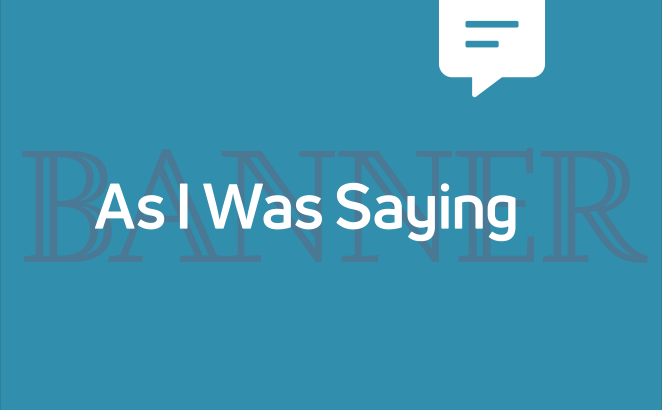Within our churches, there is a general pushback against charging Christians with dismantling racism. The fear of white supremacy is considered to be overblown, and talking about racism is equated with progressive theology outside of the bounds of Christian orthodoxy.
Find exclusive content here not available in the monthly print version of The Banner. New As I Was Saying blogs are posted Fridays and sometimes Tuesdays, and Behind The Banner blogs post on the third Friday of every other month (but sometimes more frequently).
- READ MORE
- READ MORE
Sometimes serving Jesus invites us into a holy madness that makes little sense to the world.
- READ MORE
I’m learning to discern the difference between healthy accountability in using my gifts and vainglorious martyrdom.
- READ MORE
Although I cannot yet see the fruition, beneath the surface seeds are already germinating, preparing to poke their heads out of the soil when the time is right, bursting forth into new plants. Within weeks, buds and leaves will appear on the same trees that now look so dim. Rain will fall, the puddles becoming homes for small frogs. By the middle of June, flowers will abound.
- READ MORE
Was Jesus’ death on the cross a form of divine child abuse?
- READ MORE
Should we celebrate that parks are cleaner, that creativity is blossoming, that local business is thriving? Or should we mourn that the most vulnerable members of our city are quietly being forced out of their homes as rents shoot up and homes become less and less affordable? Can we do both?
- READ MORE
Are we using a season designed for contemplation of the holy to alleviate our own insecurities about our bodies, our work ethic, our personal health? And if so, is it time, as we’ve done with Christmas, to take stock of what the “true meaning” of Lent really is?
- READ MORE
Congregations may look like organizations in which market-based strategies apply, but these strategies are never going to capture the full range of what they do or how they can best be supported.
- READ MORE
As I see it, morality is at the center of God’s heart; it always has been and always will be. If so, we need to rediscover its beauty and power.
- READ MORE
This question haunts me: Will we surrender our third third to Jesus? If we won’t, our broken world will lose; sadly, so will we.
- READ MORE
Against the backdrop of glittering white twinkle lights strung along the living room walls and quiet piano music played by a pianist I’d hired the day before, the painful story spilled forth.
- READ MORE
When we reject God and follow our own purposes, ugliness results. These ugly stories hold up a mirror to show us how sin looks
- READ MORE
What do we do when our culture provides us with a counter-narrative to the one in Scripture, one that, on the surface, appears far more alluring, satisfying, and fulfilling than the one that Scripture offers?
- READ MORE
The annual practice of setting New Year’s resolutions has taught me that my sins and failings, even those that come before January 12, will not be the end of me. In Jesus Christ and through the Spirit, God is more faithful than I have yet to imagine.
- READ MORE
Every Christ follower has the potential to be a multiplying agent for the kingdom.
- READ MORE
What may look like a simple move in the search of a good outcome—when the moral stakes are so high—will almost certainly have profound unintended consequences.
- READ MORE
We don’t often think of Advent as looming. But here is a time of darkness, preceding the Redeemer’s birth into a dark and cold night.
- READ MORE
If the Holy Spirit holds the cosmos together (every facet of every human being’s biological, relational, educational, social, and economic life), and if holding means nearness, then surely every time a human being wakes up to God, that moment is a remembering of a presence that’s always been there.
- READ MORE
Living among people whose suffering is relentless, heartbreaking, mind-numbing, has changed me. I am hungrier for heaven’s healing than I have ever been.
- READ MORE
Songs of praise often celebrate God taking us from our hurts; songs of lament recognize God with us in our hurts.
- READ MORE
The heartfelt question was posed to me in the waning moments of an evening filled with the easy camaraderie that forms between those walking a pathway of similar joys and sorrows.
- READ MORE
Psalm 137 is, for me, the prayer in the Bible that most accurately expresses the extreme rage that comes with the experience or observation of the world’s worst abuses
- READ MORE
Does legalized cannabis help me to better love and serve God and my neighbor?
- READ MORE
Deciding to take it all on doesn’t convey a healthy trust in God’s provision, or trust in others to be the elbows while I focus on being the spleen (to stretch a biblical metaphor).


